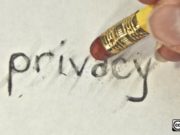The recent news of the leaked DNC emails, along with the more recent DCCC hack, has left many observers concerned about the state of privacy in the modern world and more specifically about the worrisome potential for hacking to become a common tactic for political opposition.
Both hacks were not only criminal acts, but also deplorable invasions of privacy. Everyone can (or should) agree that illegally hacking into the private servers of any organization and releasing personal information to the public is invasive and wrong. No one with any respect for the right to privacy would ever attempt to justify such activity as necessary for the sake of “transparency.” Why then, when the FEC engages in almost the exact same activity, is it touted as a virtuous act necessary for protecting a “clean” political process? And why is it that legitimate calls for transparency in our government now include the activities of private citizens?
Regardless of your opinions on campaign finance “reform” or “money in politics,” the individual right to privacy is hard to argue against. The Supreme Court has upheld the right to privacy time and again, and freedom from governmental intrusion into our personal lives is an undeniable right guaranteed by the Constitution. This is the exact reason why a majority of Americans were disturbed by the discovery of the NSA’s overly broad surveillance programs. Gathering the private information of citizens who have not engaged in any criminal activity is highly concerning for a litany of reasons.
However, this is standard procedure for the FEC. Current disclosure laws, enforced by the Commission, require every citizen that wishes to donate more than $200 to a candidate, political party, or political action committee to agree to have his or her personal information collected by the government and posted online in a public database in perpetuity. (Even those giving under $200 have their name, home address, occupation, and employer recorded by campaigns for recordkeeping and accounting purposes. Other personal information, like phone numbers and e-mail addresses, of donors are collected and permanently saved by campaigns too.)
Accordingly, Americans who desire to make a relatively small political contribution must first agree to sacrifice their right to privacy. And while eschewing this right in the case of disclosure laws is voluntary in the sense that would-be donors are aware of the laws before contributing, should a federal agency really be forcing citizens to cede a basic right simply to support the candidate or party of their choice?
Admittedly, preventing and spotlighting corruption is a noble goal, and the disclosure of the names of significant donors may in fact help to prevent and prosecute corruption when it does happen. But in the same way that the potential for mass surveillance to reveal national security threats does not justify trampling on the privacy rights of millions of citizens, further extending current disclosure requirements is difficult to justify simply by pointing to the mere possibility of discovering corruption or the appearance of corruption.
While the leaked DNC emails did reveal some questionable fundraising practices, even those in favor of ever more stringent disclosure requirements would be hard-pressed to say that these revelations justify the act of hacking a private server and leaking personal information to the public. Indeed, major donors to the DNC have expressed serious concerns about threats to their personal privacy, and if hacks such as this became the norm, surely fewer and fewer donors would choose to participate in the political process.
In other words, the looming threat of having one’s personal information released to the public would have an overall chilling effect on political speech. This concept is quite easy to grasp and rather difficult to deny. But for some reason, when it comes to the mandatory disclosure enforced by the FEC, “reform” advocates are not the least bit concerned about this chilling effect.
According to the pro-regulation lobby, it is perfectly justifiable for a government agency to collect, store, and publicly release the name, home address, employer, and occupation of private citizens in the name of “transparency.” Never mind the fact that “reform” activists are, by and large, agitating for information about supporters of private citizen groups and not the government. Transparency was never meant to refer to the ability of government to monitor the actions of citizens, but rather for citizens to be able to monitor the actions of government.
Just like the information that is released in compliance with disclosure laws, the leaked emails have been primarily utilized by political opponents for the sake of harassment. And harassment does and will continue to chill political speech and deter association. The Supreme Court got it right in the 1958 case, NAACP vs. Alabama, in which it held that the NAACP did not have to publicly disclose their members for exactly this reason.
So, if you saw anything wrong or concerning with either the DNC or DCCC hacks, maybe it’s time to take a closer look at current disclosure requirements and consider whether the good intentions of such laws truly justify the harmful effects they wreak on political speech and participation.














